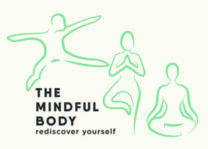Last week, my car keeled over and wouldn’t start. It’s been a great car, nothing wrong with it whatsoever and then suddenly it wouldn’t start. The AA man came out and looked at the battery and asked me “how old is this?”. I know perfectly well that you should replace a car battery every 2-4 years so sheepishly I told him: “The battery is six years old”. He just looked at me sadly. I hadn’t bothered thinking about anything underneath the bonnet at all, the car just magically kept going – until it didn’t. We often think about ourselves in the same way; we choose not to think about our own physical and mental state as long as we can keep going – until a crisis happens. To prevent our personal battery running down, we need to make small changes in order to make a big difference to our physical and mental welfare.
I’m a qualified Feldenkrais teacher and I am particularly interested in the notion of change. The Feldenkrais Method is a process of self-education through movement and is named after Dr Moshe Feldenkrais, who developed this approach. The aim of The Feldenkrais Method is to improve functional movement, primarily through developing perception, motor learning, and our innate ability to discover that better movement patterns can be pleasurable and instinctive.
When we become aware that one form of posture is uncomfortable and potentially damaging but another approach can be pleasurable and beneficial, then perhaps we can create a different form of habitual movement. However, remembering to be mindful can be a real challenge. Our habits form part of our identity, they create a structure on which we build our self-image. We define ourselves by what we do but we often limit ourselves by how we do something. The Feldenkrais Method helps you identify limiting habits – this can be as simple as changing the way you sit on a chair or reach up to a high shelf. Small changes in everyday actions work with the nervous system, increases your self-awareness, and teaches you easy and comfortable options for self-reorganisation.
In a Feldenkrais class, we gently explore movement patterns that are similar to the way you first learned to move: we learn to release tension in the muscles and to use the skeletal system more efficiently in order to reach, roll, stand up and sit down with less effort. The emphasis is on re-learning the natural movement you had as a young human, to regain pleasure and freedom instead of effort and anxiety. The pleasure principle is important in all learning situations because no matter what type of habit we are dealing with (emotional, mental, or in movement) a person will not give up an old habit unless the one being offered as a replacement is in every way as good or better than the old one.
When I begin to teach a Feldenkrais class lesson, I start by asking the class to lie down on the floor – to give up on the struggle with gravity for a moment and surrender to the floor. There is very little muscular effort required in order to lie on a neutral surface and so in this way, the nervous system can feel safe and calm, then it is possible to notice in finer detail the physical and mental state. Here, the practice is closely aligned to mindfulness, I’m asking everyone to notice the present moment, without judgment and without dwelling on the past or the future. Try it, your body will thank you for it.
I teach a regular online class for home office workers called “Take a Break From Work”. For most people, the idea of taking a break is to put the kettle on, it’s a habitual response to needing time out. If you can instill the notion that before you reach for the tea bags, you pause, check in with your physical and mental state, perhaps even lie down for a few minutes, then you will discover a sense of relief and release. You might even create an easy, new habit that will benefit your whole body and mind.
(This blog piece originally appeared on The Practice Rooms website in January 2021)


